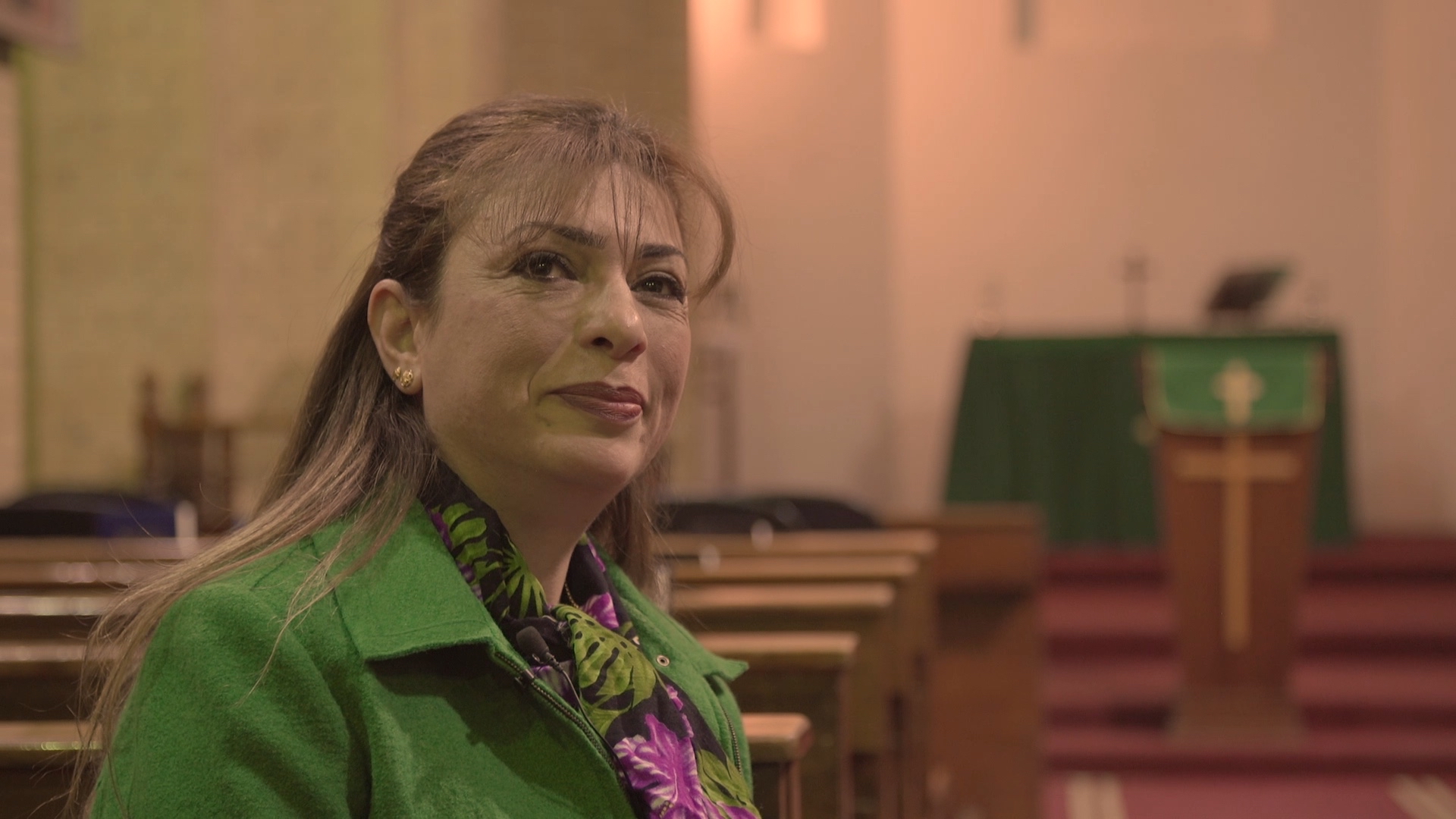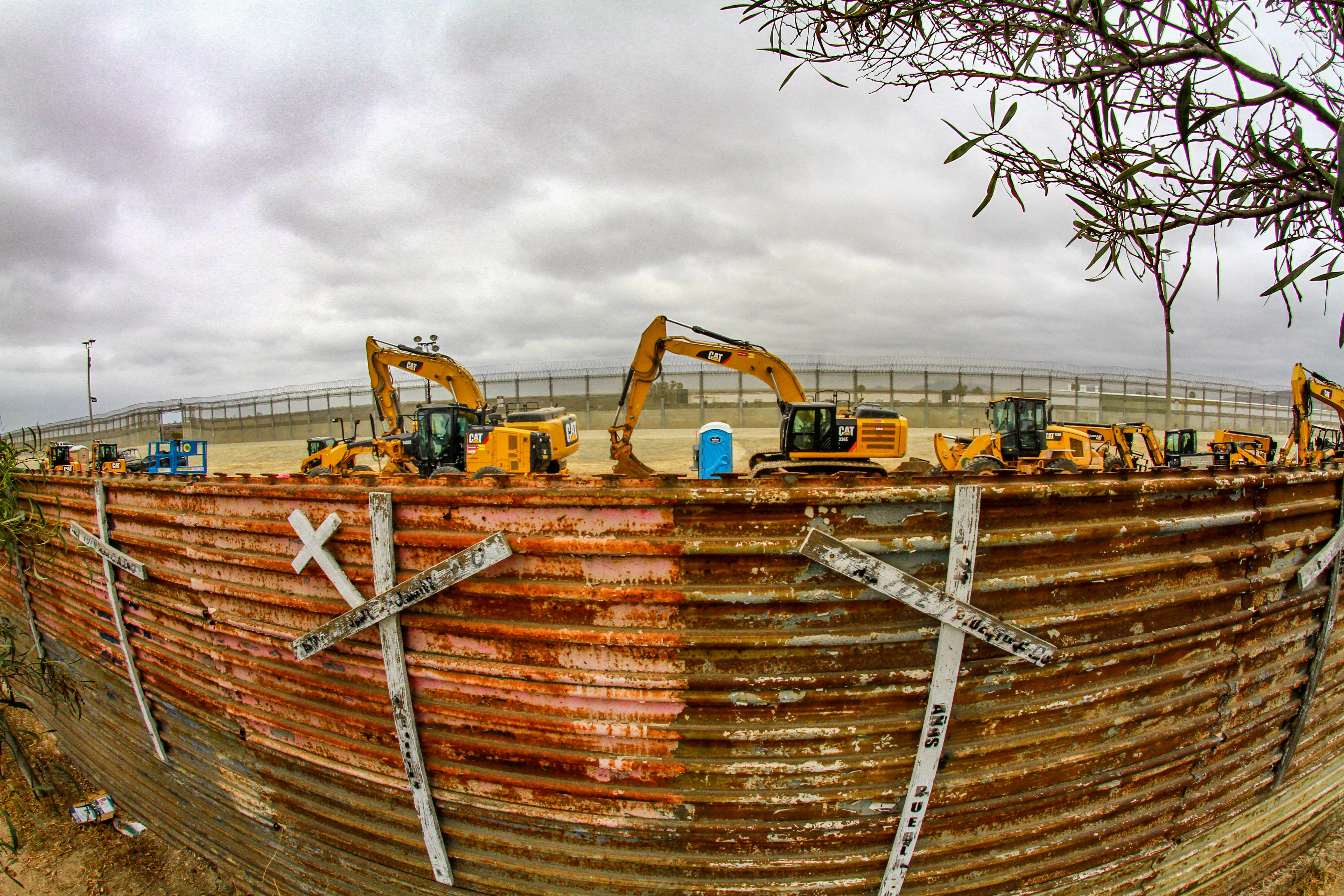The impact of a Trump administration crackdown on illegal border crossings from Mexico has created a political storm in the US. A Columban priest based in El Paso reports on the situation.
So much of what is happening at the US-Mexico border reminds me of Chile under General Pinochet.
My first ten years in Chile was under his dictatorship, as a Columban Father, living and working in the poorest areas of the capital, Santiago, and the repressive regime provoked responses of solidarity and activism among people of the most diverse backgrounds, believers and non-believers.
This week, over 20 members of various human-rights groups in both Mexico and the US joined together to accompany a group of six people trying to ask for asylum in the US. The six were from Guatemala, escaping the gang violence: a mother and her six-year-old son, another mother with her five-year-old son, and two brothers from another family, both under 18 (“unaccompanied minors”, in official parlance). Ruben García, founding director of the shelter for undocumented migrants, Annunciation House, here in El Paso, Texas, led the entire group, asylum-seekers and advocates, along with a hovering flock of journalists, from the Juarez, Mexico side of the international bridge crossing over the Rio Grande.
When we arrived at the border markings, two officers of the Customs and Border Protection (CBP) approached us, and asked the six asylum-seekers, by now joined by another group of a single family from the Mexican state of Guerrero also seeking protection from violence, what they wanted. One of the mothers explained very clearly that they were fleeing for their lives, and were afraid, and wanted to come into the US in order to have a chance to explain before a judge their life-threatening situation, so that he would allow them to stay in the country. To make her petition even clearer to the two guards, Ruben had written in large letters on a piece of paper the English version of their request.
The guards asked their superior to come up to this part of the bridge from the customs border offices, and this superior in turn requested a regional “watch” officer to come and talk with us. Ruben, in the meantime, explained that this group of six asylum-seekers had been sleeping on the streets of Juarez, Mexico, for the past several nights, and this was the seventh time they were on this bridge, asking for asylum, having been turned away at all previous times by CPB officers.
The officers multiplied in number as each higher authority arrived, and they tried to smile and explain that they just couldn’t handle asylum-seekers right now, there were too many people to attend to. It would be inhumane to let them in, one officer said, since there was no place to put them while the asylum-seekers were processed. More inhumane than sleeping on the streets of Juarez, Ruben asked? The head agent carefully avoided answering that question.
Finally, after much consultation over mobile phones with other personnel, they decided they could begin to process the original group of six Guatemalans, and they went beyond the border markings by themselves, along with the many dozens of Mexicans making their way to work and to shop who were also crossing the bridge and walking around us on the bridge’s sidewalk. We all stayed with the remaining six asylum-seekers from the Mexican state of Guerrero, notorious for years of intense violence and corruption, including the case of the missing 43 university students of 2014.
Monseñor Arturo Bañuelas was also there, a well-known priest of El Paso, and he talked with the children of the families, joking with them and getting them water on this hot day. The group waited for further word from the agents and moved a few feet further back on the Mexican side of the bridge, seeking shade. The reporters were repeatedly told to leave room for the other pedestrians, intent on getting to their jobs and studies on the US side of the border, probably crossing daily in most cases. Many Juarez residents go to work and school in the US every day, with special visas that only allow them to enter within 100 miles of the border. All the major highways of the US have checkpoints at about the 100-mile mark from the southern border between the US and Mexico, as well as from the northern border with Canada.
A typical border police helicopter flew overhead. A reporter asked me what I thought of US Attorney General Jeff Sessions’ recent remark on the Bible, quoting from Romans 13 and asserting the divine authority of civil governments, and, Sessions added, the law. He did this to buttress the morality of separating families at the border, in apparent response to statements from Catholic authorities, and those of other faith communities, on the immorality of making families suffer in this way.
“Jeff Sessions can cherry-pick all the biblical verses he wants, in order to justify this immoral practice,” I found myself responding, with some heat. “That doesn’t mean he has understood the main message of the Bible, which is to treat others with respect and dignity. That’s what doing God’s will means.
“All the major religious traditions assert the importance of treating others as we would wish to be treated. If the shoe were on the other foot, we sure would want people to let us enter their countries and be welcomed!”, I added. “And, knowing these people and cultures, I’m sure they would welcome us, much more effectively and compassionately than our nation is presently doing.”
Many families are approaching the border gates and bridges over the entire US-Mexico border and being turned back by the authorities these days, a practice which is against the law, both our national law and international laws, besides being a betrayal of the sacred values of the American people, the great majority of which are descended from migrants and refugees themselves. I and the others around me in this diverse group—of the Detained Migrant Solidarity Committee, Hope Border Institute, and other organisations in both the U.S. and Mexico that have sprung up over the past decade or so—may be doing no more than watching this unfold, right before our eyes, but our presence is something required of our conscience, to stand at the side of the vulnerable and poor, as they experience this moment of sin, of rejection of their equal dignity with us, as God’s children, of the violation of basic human rights to security and freedom. This is a time and place for all of us to be together, opposing evil, believers and non-believers, and building together, moment by moment, a new society of sisters and brothers, a living sign of the Reign that God brings into our world. May God touch many hearts through these moments of seeming defeat, of the Cross, and raise up the consciences of many from the tombs of indifference or despair.
Fr Bob Mosher is director of the Columban Mission Center in El Paso, Texas, and from the US.



 Loading ...
Loading ...
What do you think?
You can post as a subscriber user ...
User comments (0)